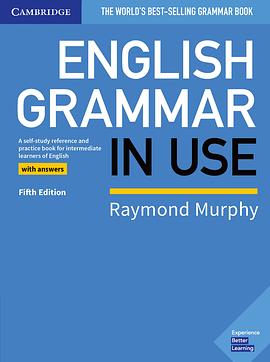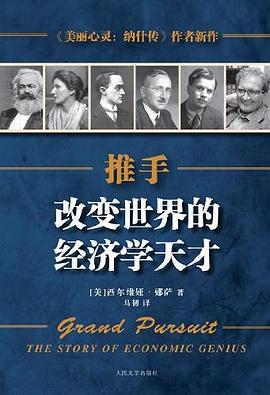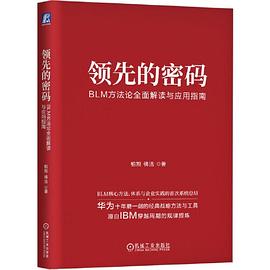English Grammar in Use
内容简介
Product description
Raymond Murphy's English Grammar in Use is the first choice for intermediate (B1-B2) learners and covers all the grammar you will need at this level. This book with answers has clear explanations and practice exercises that have helped millions of people around the world improve their English. It is perfect for self-study and can also be used by teachers as a supplementary book in classrooms.
......(更多)
作者简介
......(更多)
目录
Contents
Thanks vii
To the student viii
To the teacher x
Present and past
1 Present continuous (I am doing)
2 Present simple (I do)
3 Present continuous and present simple 1 (I am doing and I do)
4 Present continuous and present simple 2 (I am doing and I do)
5 Past simple (I did)
6 Past continuous (I was doing)
Present perfect and past
7 Present perfect 1 (I have done)
8 Present perfect 2 (I have done)
9 Present perfect continuous (I have been doing)
10 Present perfect continuous and simple (I have been doing and I have done)
11 how long have you (been) … ?
12 for and since when … ? and how long … ?
13 Present perfect and past 1 (I have done and I did)
14 Present perfect and past 2 (I have done and I did)
15 Past perfect (I had done)
16 Past perfect continuous (I had been doing)
17 have and have got
18 used to (do)
Future
19 Present tenses (I am doing / I do) for the future
20 I’m going to (do)
21 will and shall 1
22 will and shall 2
23 I will and I’m going to
24 will be doing and will have done
25 when I do and when I’ve done if and when
Modals
26 can, could and (be) able to
27 could (do) and could have (done)
28 must and can’t
29 may and might 1
30 may and might 2
31 have to and must
32 must mustn’t needn’t
33 should 1
34 should 2
35 I’d better … it’s time …
36 would
37 can/could/would you … ? etc. (Requests, offers, permission and invitations)
if and wish
38 if I do … and if I did …
39 if I knew … I wish I knew …
40 if I had known … I wish I had known …
41 wish
Passive
42 Passive 1 (is done / was done)
43 Passive 2 (be done / been done / being done)
44 Passive 3
45 it is said that … he is said to … he is supposed to …
46 have something done
Reported speech
47 Reported speech 1 (he said that …)
48 Reported speech 2
Questions and auxiliary verbs
49 Questions 1
50 Questions 2 (do you know where … ? / he asked me where …)
51 Auxiliary verbs (have/do/can etc.) I think so / I hope so etc.
52 Question tags (do you? isn’t it? etc.)
-ing and to …
53 Verb + -ing (enjoy doing / stop doing etc.)
54 Verb + to … (decide to … / forget to … etc.)
55 Verb (+ object) + to … (I want you to …)
56 Verb + -ing or to … 1 (remember, regret etc.)
57 Verb + -ing or to … 2 (try, need, help)
58 Verb + -ing or to … 3 (like / would like etc.)
59 prefer and would rather
60 Preposition (in/for/about etc.) + -ing
61 be/get used to … (I’m used to …)
62 Verb + preposition + -ing (succeed in -ing / insist on -ing etc.)
63 there’s no point in -ing, it’s worth -ing etc.
64 to … , for … and so that …
65 Adjective + to …
66 to … (afraid to do) and preposition + -ing (afraid of -ing)
67 see somebody do and see somebody doing
68 -ing clauses (He hurt his knee playing football.)
Articles and nouns
69 Countable and uncountable 1
70 Countable and uncountable 2
71 Countable nouns with a/an and some
72 a/an and the
73 the 1
74 the 2 (school / the school etc.)
75 the 3 (children / the children)
76 the 4 (the giraffe / the telephone / the old etc.)
77 Names with and without the 1
78 Names with and without the 2
79 Singular and plural
80 Noun + noun (a bus driver / a headache)
81 -’s (your sister’s name) and of … (the name of the book)
Pronouns and determiners
82 myself/yourself/themselves etc.
83 a friend of mine my own house on my own / by myself
84 there … and it …
85 some and any
86 no/none/any nothing/nobody etc.
87 much, many, little, few, a lot, plenty
88 all / all of most / most of no / none of etc.
89 both / both of neither / neither of either / either of
90 all every whole
91 each and every
Relative clauses
92 Relative clauses 1: clauses with who/that/which
93 Relative clauses 2: clauses with and without who/that/which
94 Relative clauses 3: whose/whom/where
95 Relative clauses 4: extra information clauses (1)
96 Relative clauses 5: extra information clauses (2)
97 -ing and -ed clauses (the woman talking to Tom, the boy injured in the accident)
Adjectives and adverbs
98 Adjectives ending in -ing and -ed (boring/bored etc.)
99 Adjectives: a nice new house, you look tired
100 Adjectives and adverbs 1 (quick/quickly)
101 Adjectives and adverbs 2 (well, fast, late, hard/hardly)
102 so and such
103 enough and too
104 quite, pretty, rather and fairly
105 Comparative 1 (cheaper, more expensive etc.)
106 Comparative 2 (much better / any better etc.)
107 Comparative 3 (as … as / than)
108 Superlative (the longest, the most enjoyable etc.)
109 Word order 1: verb + object; place and time
110 Word order 2: adverbs with the verb
111 still any more yet already
112 even
Conjunctions and prepositions
113 although though even though in spite of despite
114 in case
115 unless as long as provided
116 as (as I walked … / as I was … etc.)
117 like and as
118 like as if
119 during for while
120 by and until by the time …
Prepositions
121 at/on/in (time)
122 on time and in time at the end and in the end
123 in/at/on (position) 1
124 in/at/on (position) 2
125 in/at/on (position) 3
126 to, at, in and into
127 in/on/at (other uses)
128 by
129 Noun + preposition (reason for, cause of etc.)
130 Adjective + preposition 1
131 Adjective + preposition 2
132 Verb + preposition 1 to and at
133 Verb + preposition 2 about/for/of/after
134 Verb + preposition 3 about and of
135 Verb + preposition 4 of/for/from/on
136 Verb + preposition 5 in/into/with/to/on
Phrasal verbs
137 Phrasal verbs 1 Introduction
138 Phrasal verbs 2 in/out
139 Phrasal verbs 3 out
140 Phrasal verbs 4 on/off (1)
141 Phrasal verbs 5 on/off (2)
142 Phrasal verbs 6 up/down
143 Phrasal verbs 7 up (1)
144 Phrasal verbs 8 up (2)
145 Phrasal verbs 9 away/back
Appendix 1 Regular and irregular verbs 292
Appendix 2 Present and past tenses 294
Appendix 3 The future 295
Appendix 4 Modal verbs (can/could/will/would etc.) 296
Appendix 5 Short forms (I’m / you’ve / didn’t etc.) 297
Appendix 6 Spelling 298
Appendix 7 American English 300
Additional exercises 302
Study guide 326
Key to Exercises 336
Key to Additional exercises 368
Key to Study guide 372
Index 373
vi
......(更多)
读书文摘
e.g. everyone enjoyed the party. he is invited to lots of parties and he goes to every one.
it doesn't matter whether you use MAY or MIGHT, but we use only MIGHT when the situation is not real! e.g. If I knew them better, I might invite them to dinner.
......(更多)






